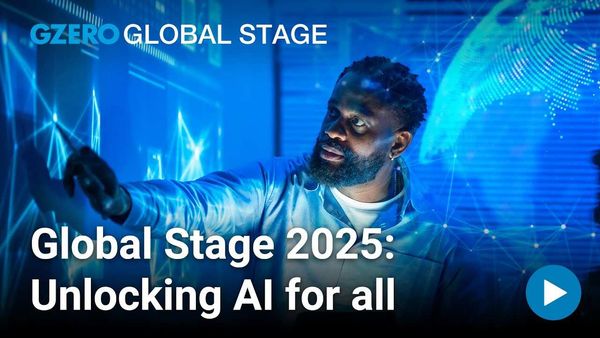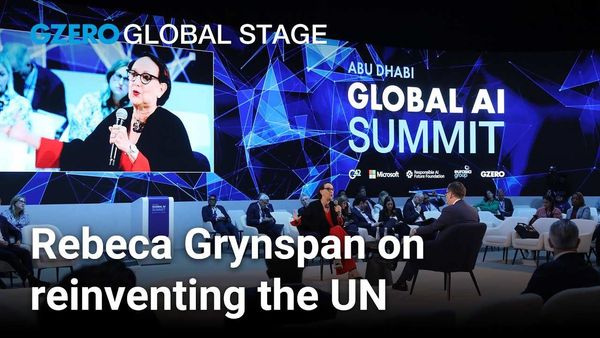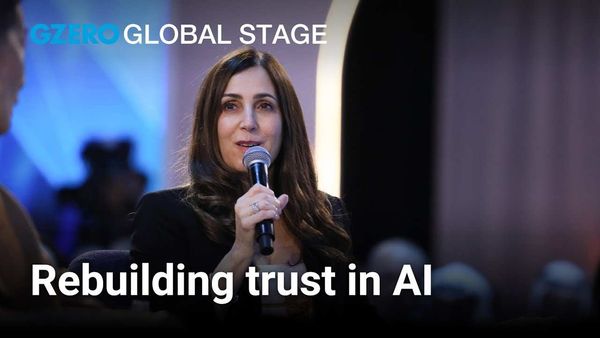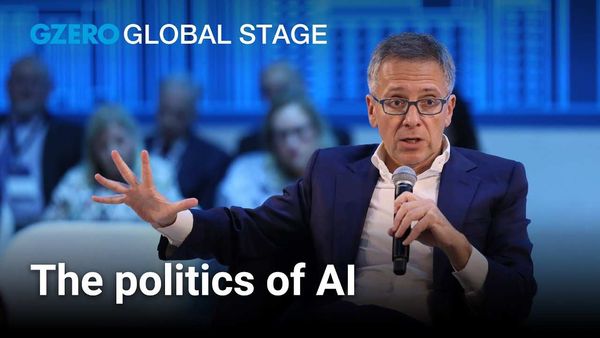The Graphic Truth: What are vaccine hackers hacking?
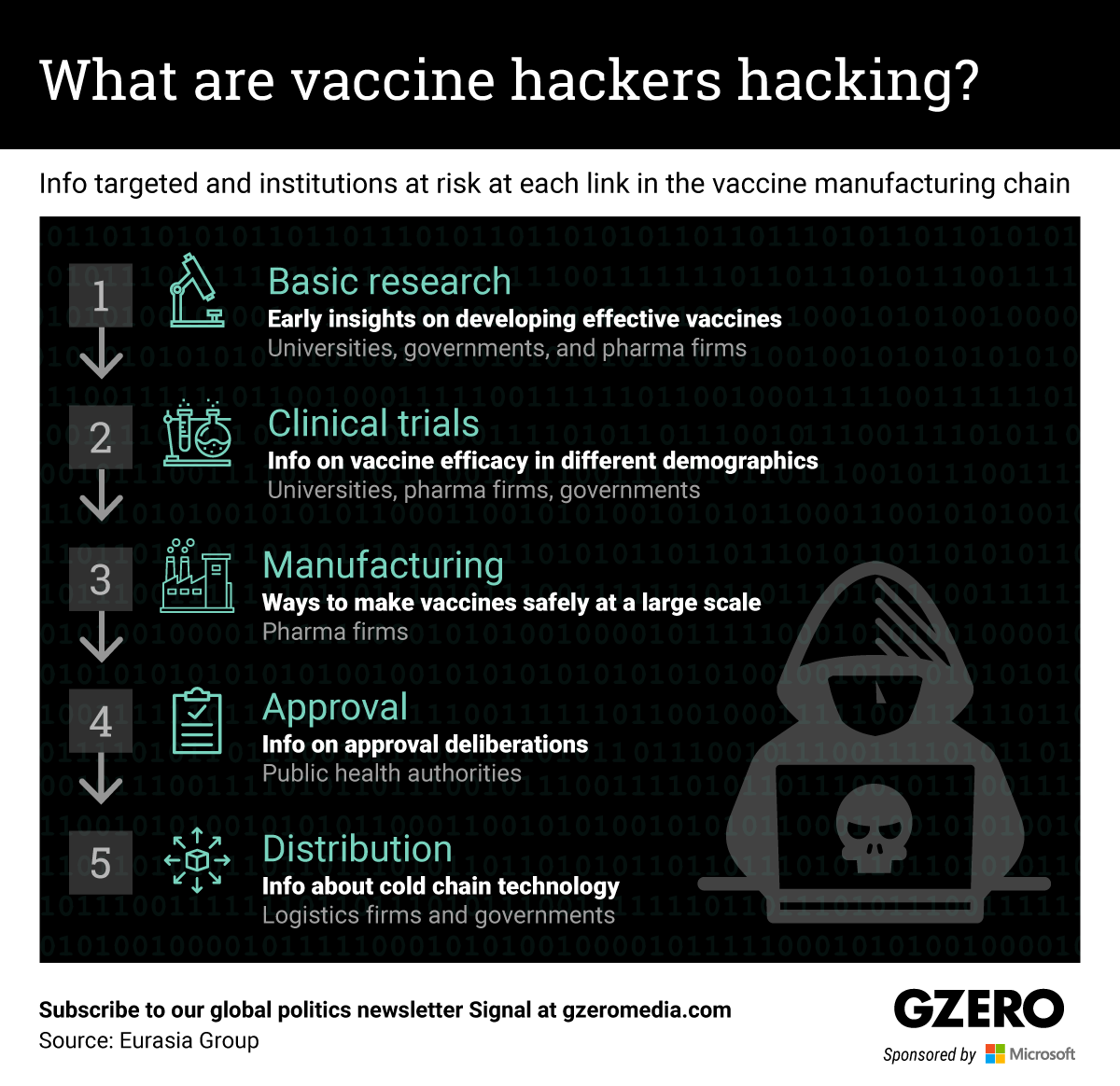
While governments around the world race to develop a coronavirus vaccine, intelligence services and criminal organizations see an opportunity: to steal vaccine research, keep tabs on the competition, or hold critical information for ransom. The vaccine manufacturing process involves a wide group of public and private organizations that have access to sensitive vaccine and manufacturing details as well as the personal information of trial participants. In addition to the risks of stolen intellectual property or personal information, hacks could also delay or derail elements of the quest for a viable vaccine. Here's a look at what hackers are after at each stage of the vaccine development process.




